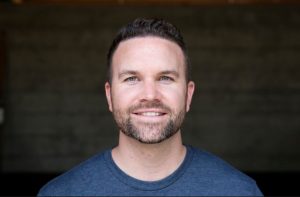 By Mac Clemmens, CEO,
By Mac Clemmens, CEO,
Digital Deployment
UC Davis MBA 2007
I meet many people with ambitions to start their own business. They dream of leaving their cubical or unfulfilling corporate career.
In 2004, I was among them—without having had my first job. I was in college—20 years old, and determined to build a company that could do great things.
In college, I studied computer science, which I loved, but I didn’t learn the skills I would need to get a startup off the ground. On a whim, I applied for MBA programs and was accepted at UC Davis. I had no idea how much that would help—my MBA experience made my dream company come true.
When I started the company, the problems were entirely practical. Where to go to apply for a business permit? How to open bank accounts? How to use QuickBooks to send invoices? As the company grew and as I hired staff, it became exponentially more complex.
I’ve found that earning an MBA prepares you for success as an entrepreneur. A friend, who was a brilliant technologist, also started a company, but lacked business acumen. His startup didn’t make it, and he ended up going back into research.
At the time, I was skeptical of the technology market and the way Silicon Valley was funding new ventures. It seemed like enthusiastic computer scientists would pitch their idea, get funding and be off and running. But their dreams of autonomy would soon be cut short and “people with business experience” were appointed to oversee and override their decisions. Boards would push founders in a different direction—one that might be profitable but might depart from their initial vision.
I chose to get the business experience I would need to grow my business organically, right here in my hometown of Sacramento.
The UC Davis MBA program was great, and offered me four ways that supercharged the growth of Digital Deployment over the long run.
1) The Network
In the UC Davis MBA program, I was pleasantly surprised that many of the social activities turned into business opportunities and vice-versa. For example, a classmates’ company became one of our first customers. My friends in accounting helped me survive an IRS audit. It helps to be surrounded by a capable and helpful alumni and corporate network I can tap for expertise and connections to overcome challenges.
2) The Lingo
I learned the language of decision-making. When we pitched our first Fortune 500 company, I remember seeing “MBA” as credentials of two evaluators on the selection team. Apparently, the runner up firm focused on their technology, going deep into technical concepts, which caused the decision-makers' eyes to glaze over. I offered a cost-benefit analysis, challenging them to view the website as an investment by demonstrating the return over the 5-year expected life. I also showed that the investment would help them to make a profit by leaning on reasonable assumptions and referencing a case. “The other guys talked to us about why their technology was the best, but you showed us how this was going to make us money—I knew the CEO would have no trouble signing off,” their head of IT told us.
3) The Funding
At UC Davis, I took a class on how to raise venture capital. I understood the allure of investor money, but also the long-term limitations it would put on the future direction of my company. I weighed how my initial vision might get appropriated or pushed to the side. I’d seen this happen many times before—dreams of entrepreneurs crushed by the very machinery they put in place in order to get it off the ground. I’m a bit of an idealist. I want to run things a certain way, whether it's providing full health benefits (a controversial expense for a small business in early 2000s but fully accepted today) or wanting to give away a freemium product to build long-term customer loyalty. We ultimately decided to leverage U.S. Small Business Administration financing. There are still risks, but I can pay off a bank once we’re done—that’s almost impossible to do with investors.
4) The Business Model
Instead of running an “agency” as many web firms do, I focused on our product early in the history of Digital Deployment. I based this approach on the advice of several of my UC Davis professors. Ever since, Digital Deployment has been quietly building a suite of Software-as-a-Service, subscription-based products that complement and capitalize on our core competencies, putting us on a firm financial foundation and keeping the company here in our state capital.
While my initial rationale to earn an MBA was also to hedge my bets to ensure I’d be well-positioned for the corporate world even if the business didn’t work out, my MBA has been indispensable in my entrepreneurial journey. I am grateful for the many ways it has helped my success. If you’re considering an MBA, I encourage you to find the program with the right fit. I’m happy to answer any questions you might have.
This is a guest blog post by Metro EDGE member Mac Clemmens, founder and CEO of Digital Deployment, a web development firm in Sacramento that partners with brands around the world. Clemmens was born and raised in Sacramento. He kickstarted his career when he was just 20. His need to pay tuition fortuitously led to the founding of Digital Deployment. He earned his UC Davis MBA in 2007.
The UC Davis Graduate School of Management is Presenting Sponsor for Metro EDGE.

